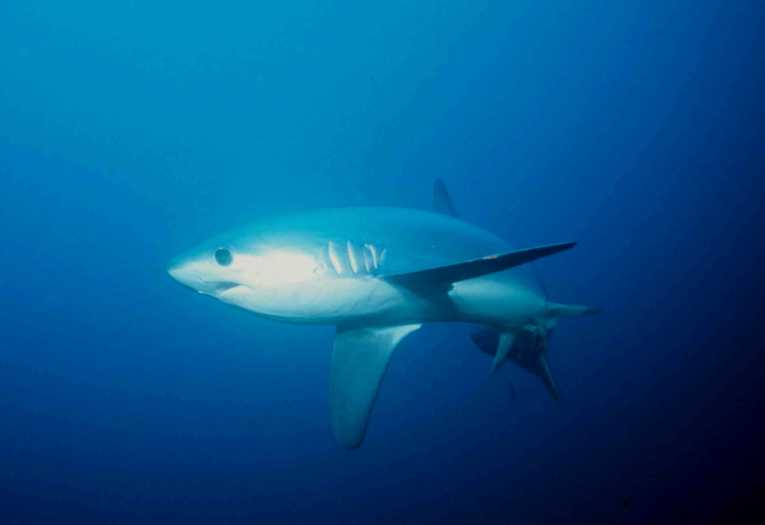Image and Video Credit: Simon Oliver
Pelagic thresher sharks are coming up from the deeps in the Philippines to be cleaned of ectoparasites. This is the first study of wild shark interactions with cleaner fish.
'Cleaner wrasses are critical to the general health of the thresher sharks, providing a vital role in the removal of ectoparasites that bother the sharks. It's a bit like us going to the doctors to get rid of a nasty case of head lice,' said Simon Oliver, lead author of the study published in online science journal PLoS One this week. Simon spent many months at Malapascua Island in the Philippines deploying remote video cameras at cleaning stations manned by the specialist fish that remove parasites from the 3m plus sharks. 'The most exciting part of the day was checking the video record to see if a shark had visited the cleaners. We then analysed the animal's behaviour, where the cleaners fed and what happened when interruptions occurred on a frame by frame basis.'
The sharks will drown if they do not continuously circulate oxygenated water over their gills, so they make repeat circular passes over the discreet areas of the reef where the cleaner species hold court. The small cleaner fish are a mere 10 - 15 cms long and electric blue and back striped, dart up from the reef to visit the parts of the shark most infested with parasites, gobbling up the flatworms that enflame the shark's cloaca (from the latin, meaning sewer) that also serves as a reproductive tract. It is difficult if not impossible to sample the parasites on a live shark so Oliver found out most about the location of ectoparasites on the fish from specimens in local fish markets. The animals are targetted by shark finners for their exceptionally large tail fins which can make up half of the body length.
'The cleaner fish species that the sharks are visiting perform an essential service,' said Oliver, 'but coming in from the deep brings them into potentially dangerous contact with humans, as these sites are known by fishermen.' The Malapascua site is visited by many scuba divers a day and although the divers presence can interrupt cleaning sessions, their presence may also protect the sharks from fishermen.










